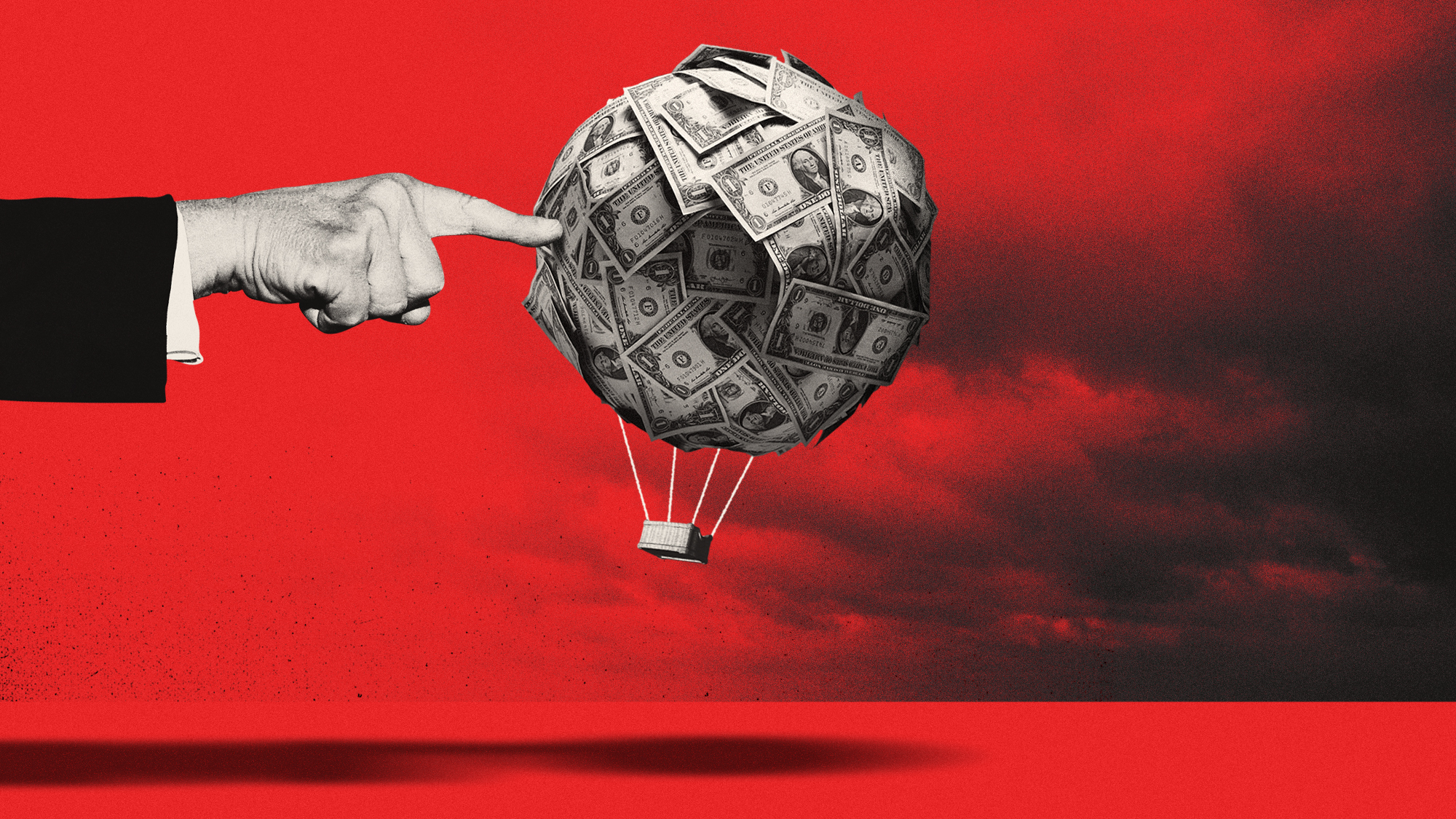Liberation Day: will Keir Starmer surrender to Donald Trump's tariffs?
After failing to secure exemptions for the UK, PM must decide whether to retaliate or not

A free daily email with the biggest news stories of the day – and the best features from TheWeek.com
You are now subscribed
Your newsletter sign-up was successful
Britain is bracing for a barrage of tariffs on its exports to the US. Tomorrow, a day dubbed "Liberation Day" by Donald Trump, the US president is set to hit goods from multiple countries with sweeping duties – in order, he says, to "overhaul our trade system to protect American workers and families".
Hopes that UK ministers could secure a last-minute exemption for British goods have been dashed by a Trump administration that is holding out for a "big bang" moment, said Steven Swinford, political editor of The Times.
The Americans "want to make a theatre of it", a government source told The Times. "They want to have the consistency of saying that they have done everything on the same day. It is a big challenge for us."
The Week
Escape your echo chamber. Get the facts behind the news, plus analysis from multiple perspectives.

Sign up for The Week's Free Newsletters
From our morning news briefing to a weekly Good News Newsletter, get the best of The Week delivered directly to your inbox.
From our morning news briefing to a weekly Good News Newsletter, get the best of The Week delivered directly to your inbox.
What did the commentators say?
Keir Starmer and his team had been working round the clock on ways to "swerve new export taxes", said Harry Cole, political editor at The Sun. But their "attempts to flatter the American chief into sparing British firms from the economic hit fell on deaf ears".
We now wait to see, said Stefan Boscia at Politico, "what rate of tariff the US chooses to put on the UK" and whether or not it ends up being "more lenient than feared". The "lingering question" now is not "how far Trump can take his trade wars, but how far he will", said Callum Jones in The Guardian.
US tariffs "have the potential to be hugely detrimental to Starmer's premiership and his hopes of galvanising economic growth", said Swinford in The Times.
Business Secretary Jonathan Reynolds insisted today that no country is "better placed than the UK" to dodge a trade war with the US. But this did not stop Goldman Sachs downgrading its growth projection for the UK economy, even if Britain is eventually able to secure a carve-out from US tariffs. And the Office for Budget Responsibility said that five years of US tariffs at 20% or 25% would "knock out all the headroom the government currently has".
A free daily email with the biggest news stories of the day – and the best features from TheWeek.com
What next?
The UK has prepared a "range of possible means to retaliate", and they are "ready to go", said The Telegraph. But – unlike the EU, which responded immediately to the earlier US steel tariffs with retaliatory tariffs on everything from Harley-Davidson motorcycles to Levi's jeans – "the PM is unlikely to pull the trigger straightaway, instead preferring a more measured approach to negotiations".
If Britain receives "little in the way of special treatment, Starmer will come under pressure to take a harsher stance", said Katy Balls, political editor of The Spectator. Already, some MPs are "expressing concerns", and others are looking at how Canada's new PM Mark Carney has "stood up to Trump, with some positive results both in terms of tariff negotiations and a poll bounce".
This "could be the week" that Starmer finally "has to stand up to the US president" and put "retaliatory measures on the table".
-
 Sepsis ‘breakthrough’: the world’s first targeted treatment?
Sepsis ‘breakthrough’: the world’s first targeted treatment?The Explainer New drug could reverse effects of sepsis, rather than trying to treat infection with antibiotics
-
 James Van Der Beek obituary: fresh-faced Dawson’s Creek star
James Van Der Beek obituary: fresh-faced Dawson’s Creek starIn The Spotlight Van Der Beek fronted one of the most successful teen dramas of the 90s – but his Dawson fame proved a double-edged sword
-
 Is Andrew’s arrest the end for the monarchy?
Is Andrew’s arrest the end for the monarchy?Today's Big Question The King has distanced the Royal Family from his disgraced brother but a ‘fit of revolutionary disgust’ could still wipe them out
-
 Currencies: Why Trump wants a weak dollar
Currencies: Why Trump wants a weak dollarFeature The dollar has fallen 12% since Trump took office
-
 TikTok: New owners, same risks
TikTok: New owners, same risksFeature What are Larry Ellison’s plans for TikTok US?
-
 Trump wants a weaker dollar, but economists aren’t so sure
Trump wants a weaker dollar, but economists aren’t so sureTalking Points A weaker dollar can make imports more expensive but also boost gold
-
 Leadership: A conspicuous silence from CEOs
Leadership: A conspicuous silence from CEOsFeature CEOs were more vocal during Trump’s first term
-
 The end for central bank independence?
The end for central bank independence?The Explainer Trump’s war on the US Federal Reserve comes at a moment of global weakening in central bank authority
-
 Can Trump make single-family homes affordable by banning big investors?
Can Trump make single-family homes affordable by banning big investors?Talking Points Wall Street takes the blame
-
 What will the US economy look like in 2026?
What will the US economy look like in 2026?Today’s Big Question Wall Street is bullish, but uncertain
-
 Tariffs have American whiskey distillers on the rocks
Tariffs have American whiskey distillers on the rocksIn the Spotlight Jim Beam is the latest brand to feel the pain